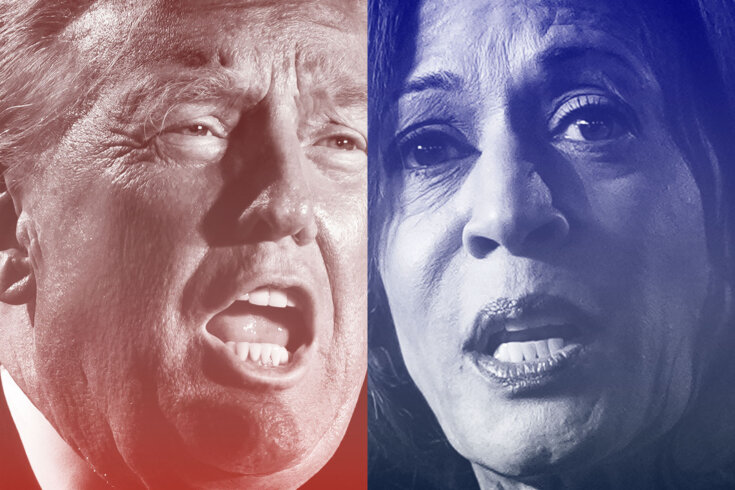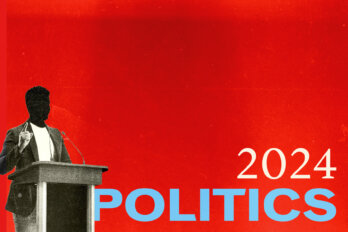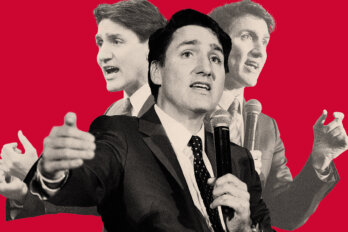Earlier this year, I found myself looking for a book I read years ago in a US history class: This Republic of Suffering by Drew Gilpin Faust. The book tells the story of the American Civil War by focusing on death. With an estimated 620,000 soldiers, or 2 percent of the country’s population, killed—the equivalent of almost 7 million today—Faust looks at the impact of death and suffering on the nation. I thought of it after a former mentor, the very professor who assigned the book in the first place, spoke movingly to me about drawing inspiration and guidance from history, particularly when it comes to living through difficult times with courage and conviction. It’s a kinship of sorts—the recognition that others have endured the unthinkable and fought for the unimaginable, and so perhaps we can too.
I reached for Faust’s book as I reflected on American political violence today, the rise of authoritarianism and polarization, the ongoing effects of the pandemic, American-funded war crimes and genocide, and our escalating climate crisis. I felt afraid and overwhelmed, and I turned to US history because it’s what I know best. In retrospect, I was looking for the kind of solace my professor was talking about.
But so often these days, I’m reminded not of historical parallels or lessons but of the fact that much about this US presidential election—and especially its broader context—is unprecedented. It’s a word that’s so overused it’s been stripped of urgency, so it’s worth spending a moment to figure out what it actually means. For me, broadly speaking, it’s the sensation of being unmoored from history. This doesn’t mean we’ve shed its weight. Rather, it’s a disconnect from how our current moment fits within historical paradigms. The disconnect lies in the fact that we are experiencing cataclysmic changes humans have never seen before, and at a scale that puts life on this planet at risk. We’re left with little to no guidance on what lessons to draw from the past in order to shape where this all might lead. As British Palestinian author Isabella Hammad writes in Recognizing the Stranger: On Palestine and Narrative, it’s difficult to know when you’re at a turning point. Usually, it’s seen only in hindsight.
Efforts to compare this election with other pivotal ones from the past usually start and stop with 1860. That year’s election triggered the civil war, which ended legal slavery and transformed the nation. It also reverberated globally, while the question of slavery’s westward “expansion” was, at its heart, settler colonialism. But in 1860, the US was not the superpower it is today. The world had not yet been saturated with its bombs and missiles, its interests and image. This year’s election matters not just for Americans or the people who care about the integrity of the country’s democratic system. It matters for people in Gaza, Lebanon, Ukraine, Taiwan, Guatemala, Haiti, Yemen, Venezuela, Sudan, and all over the world, because the US has its hands in so many conflicts and concerns. In an election dominated mostly by domestic issues, it’s hard to map out trajectories specific to each candidate. But Kamala Harris seems to represent more of the same in terms of American foreign policy, while Donald Trump remains defiant in his vindictiveness, volatility, and chronic lying. He’s also spoken favourably of authoritarian figures like Vladimir Putin, Xi Jinping, and Kim Jong Un.
I’ve heard historians make the claim that disinformation isn’t new—and it isn’t: during the lead-up to the civil war, northerners and southerners lived in different realities, in part because the south banned abolitionist press, and once the war broke out, some newspapers blurred the line between propaganda and news. What’s unique now is the scale, speed, and technological prowess of the dis- and misinformation that shape our world. Hence the ability of Trump’s lie that the 2020 election was stolen to spread so rapidly or the proliferation of troll farms and deepfakes. It’s also hard to compare traditional print media to the vast amounts of data—millions or trillions of data points—that AI models process to form algorithms, ads, chatbots, and so much more.
Many of the companies behind these mechanisms—Google, Meta, OpenAI, Microsoft, and more—are rooted in the US. And although local legislation can and does set limits on the operations of these companies in other countries—like Canada’s Online News Act, for instance—how the US regulates and responds to big tech matters immensely. American regulators are starting to wake up to the threats, and there are antitrust cases against Google underway. (As Keldon Bester, executive director of the Canadian Anti-Monopoly Project and fellow with the Centre for International Governance Innovation, confirmed for me, if any country could potentially break up parts of Google or similar companies, the US is in the best position to do so.) The next president will decide if they want to keep pursuing such cases as well as regulate AI development and use, which an executive order issued last year by President Joe Biden starts to do. The Republican party platform already includes a provision to repeal the order—in the name of innovation and freeing AI development from “Radical Leftwing ideas.”
Today’s crises are interconnected—big tech shapes wars and violence, and both contribute to the climate crisis, which itself leads to greater instability and escalating conflicts. Globally speaking, though, the climate crisis is one of the most important yet overlooked stakes in this election. The US is one of the world’s worst polluters and currently the largest oil producer. It is also home to some of the biggest fossil fuel companies, including Chevron and Exxon, the latter of which predicted global warming from burning fossil fuels decades ago.
In a July TED talk, Johan Rockström, co-director of the Potsdam Institute for Climate Impact Research, noted that we’re halfway through the 2020s, the pivotal decade in terms of determining the vitality of future generations on this planet. Whoever wins this election will guide the US through the final years of this decade.
Let that sink in for a minute. Whoever is elected will decide whether or not the US finally treats this crisis with the urgency and attention it deserves. Given the state of our planet, the American president should be talking about the climate as other political figures like Al Gore or UN secretary-general António Guterres regularly do—underscoring the fact that lives are at risk, all over the world. They should be combining that talk with meaningful action, like slowing the production and burning of fossil fuels. This would set the ultimate example for other countries: If the US can do it, why not them too?
Of course, none of this is actually on the table in terms of detailed platforms or specific policies. And although there are critical differences—Harris at least accepts the reality of the climate crisis, for instance—both candidates clearly aren’t living up to this moment and what it demands of America’s next president. During the lead-up to the 2020 election, climate scientist Michael Mann said the earth’s future “is now in the hands of American citizens.” More recently, he’s reiterated his prediction that it would be “game over for climate action” if Trump wins another term. This doesn’t necessarily mean that Harris would prove the climate champion some outlets have made her out to be. Indeed, Harris’s answer to the one and only climate question in the presidential debate encapsulates a vision where you can seriously “fight” climate change while continuing to produce and consume historic quantities of oil and gas—which simply isn’t true. Still, Mann’s comments speak to the oversized influence America plays in our rapidly warming world as well as to the consequences of this election for the planet.
Perhaps this is one reason why the gravitas of our age—and this election—seems to be glossed over. The scope of it is almost impossible to grasp. Instead of trying to interrogate the choices, crises, and futures we face, too many—whether from a place of denial, apathy, fatigue, or helplessness—spent considerable time focusing on who’s “weird” and trying to define “brat.”
The stakes of this election are high for Americans, of course. But they’re high for every single one of us, every human and non-human being. They’re high for countless species in crisis and facing extinction. They’re high for the very future of human civilization itself—the question of whether or not we will have new generations of historians to look back upon this moment and write the history of what happened on November 5, 2024, when so much was on the line.





